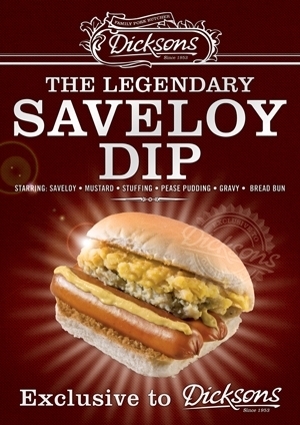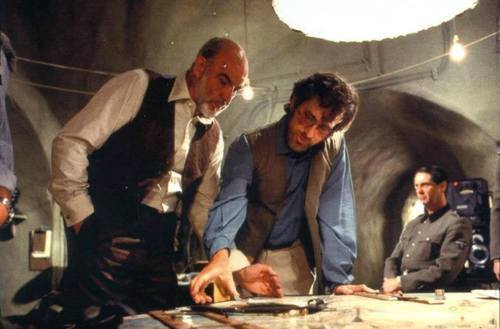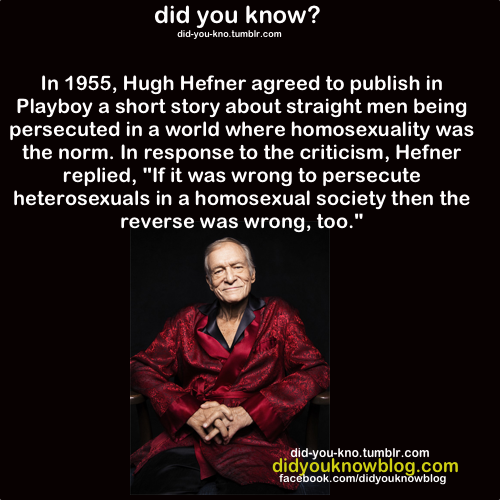C.K. Burch's Blog, page 331
November 25, 2013
dduane:
petermorwood:
I’m Anglo-Irish and I want to add my...

I’m Anglo-Irish and I want to add my tuppenceworth, which might help clear some of the doubts, confusion and criticism I’ve seen in the comments.
People mustn’t think Brit English is just one language. If you went to the UK and didn’t spend time away from your mates/tour group/Home Counties/ London, you missed a lot. Once you get out into the regions, it doesn’t sound like Sherlock any more; for Heaven’s sake, that show is made in Cardiff but couldn’t sound more London if it tried!
Most of the words in this chart are Northern regional variations - mostly Yorkshire/Lancashire/Teeside, so you won’t see or hear them much south of Birmingham, and except for the most modern (Zip / Post Code, restroom / cottage - sometimes “bungalow” or “Bungle”, God knows why - and sidewalk / footroad) there’s fascinating history behind all of these names. Here’s a few Things You Might Not Know…
The “Rupert” of “Rupert’s Fingers" is Prince Rupert of the Rhine, nephew of Charles I and a famous Cavalier during the English Civil War (Canadians will know about “Rupert’s Land" around Hudson’s Bay.
He introduced Rheinischer Bratwürst to England (the variety is pretty rare, mentioned in German Wikipedia but not in English) but the name didn’t take. Beside the usual English reluctance to “speak foreign”, they’d been using the word “Rhenish” to mean wine for more than a hundred years. That’s what Hamlet’s gravedigger means when he’s talking about Yorick the Jester..
"…A pestilence on him for a mad rogue! ‘a: poured a flagon of Rhenish on my head once…"
So to avoid mixing up wine and sausages (!) the sausage became “Prince Rupert’s Fingers”, shrinking over the years to “Rupert’s Fingers”, “Ruperts” or just “Rupies.” Again, it’s Northern slang, because after Charles I was beheaded and Cromwell established the Protectorate, the remaining centres of Royalist support were well away from London. There, a “rupie” is called a “saveloy”, based on the French word cervelat in a probably deliberate distancing from German, the Rhine and Prince Rupert.

However, in the British Army (established by Cromwell, which is why it’s never called the Royal Army) new officers are still called “Ruperts” - usually with a nod to the famous Daily Mail comic character, but actually because to experienced Non-coms they’re “keen as mustard but a bit thick.”
Legsleeves (all one word) is heard in Cumbria and the Borders along what used to be called the West Marches (not the Westmarch, that’s Tolkien!) and has to do with the mutual dislike between England and Scotland. After Henry VIII’s war known as The Rough Wooing, for which read Blitzkrieg, Sheridan’s Ride and other examples of military severity, equally severe laws were passed. One was the right to kill (with a longbow, and only a longbow) any Scotsman spotted within bowshot of Carlisle’s city walls from an hour before sunset to an hour after sunrise. (Similar laws applied to Scotsmen near York and Welshmen near Chester - these two are still on the books!)
However, someone didn’t think it through. English male costume of the period, as worn by Henry VIII himself…

…had a very unfortunate silhouette. In morning or evening mist at long-bow range, an English gentleman thrown while hunting and now on foot in tight hose under a long-skirted doublet, could look very like a Scotsman in bare legs and a kilt…
As a precaution, gentlemen serving in the danger zone took to wearing the long pendant sleeves of their gowns with very loose laces, so as to change their “bare-legged” outline before some nervous sentry took a pot-shot. Open lacing gathered in an easily undone knot became a fashion statement, hinting at having seen dangerous service for the crown, and finally, once sleeves were immovably part of jackets, the laces became part of military uniform as the epaulette.

It’s worth noting that Scotsmen still don’t wear legsleeves or even trousers. They wear breeks. As for whether they wear pants under anything, that’s a matter for the Scotsmen to reveal.
Postlord is usually just “postie” nowadays, but it’s easy to see how the full title originated after the Royal Mail was established. If you were a farmer getting his first visit from a uniformed man in a bright red wagon (though really just a small pony-trap in rural areas) emblazoned with the Royal Cypher, what would you think?
Bunglespleen is (like Bunnet/Barnet) a typo. It’s really Bundlespleen, an awkward combination of the Indo-Persian word bhadingan - now seen as brinjal on jars of Indian pickle - that English reluctance to “speak foreign”, and herbalist Nicholas Culpeper's opinion of its properties and effects when eaten.
It not only resembled a human spleen in size, shape and colour, its Latin name of melongena had been translated to Italian as mela insana and became English as “mad-apple”, so it was obvious to Culpeper that eating it was bad for mental health. “Venting your spleen” (blowing your top, letting it all out) was rightly considered healthy in a period when most men were armed, and he was concerned about the consequences of something that made people restrain - bundle, like the old courting practice - their passions.
Her Majesty’s Sugar Bunnet (not “Barnet”!) is actually Scottish, from Clydeside where the shipyards used to be. There was a lot of spillage when sugar was being unloaded, and since Cotton Candy is made by melting sugar, even spilled sugar became safe to eat.
The word’s so worn down now (and the Clydeside accent so impenetrable even to Glaswegians) that you’ll more usually be asked “Wouldya like a Shuggie Bun?" or even "Wodja lukin-a Shug?" to which (assuming you like Cotton Candy to be a bit crisp) the usual response is "Camon ifyer hardnuf!”
I love etymology and linguistics. Words have deep roots if you’re just willing to play around a bit.
Now if you don’t mind I’ve just heard a lorretta* stop outside, so let me put on my warm autumn legsleeves and go out to the footroad to see what the postlord has left us.
(*There’s another local one for you. Isn’t that a great word for the sort of middle-size delivery wagon bigger than a van, not as big as a lorry? but I’ve never heard it beyond the Wicklow/Carlow/Kildare region.)
…I can’t turn my back on you for a moment, can I? Here I sit suffering from terminal snot and oxygen deprivation and you’re upstairs winding these poor kids up. (eyeroll) You should be ashamed of yourself. Now GET ME SOME TEA and stop dicking around.
This. This has earned so many wins.
victoriousvocabulary:
OUSIA
[noun]
true being; state of...

OUSIA
[noun]
true being; state of existence; entity, essence, substance.
Etymology: derived from Ancient Greek οὐσία, from εἶναι (to be).
November 24, 2013
ancientart:
One of the most striking collections of rock-art in...


One of the most striking collections of rock-art in India, the Shaivistic high reliefs of Elephanta Caves, Elephanta Island, India.
The rock art is of Hindu deities important to worshipers of Shiva, and are thought to date to between the 6th and 8th centuries.
Photos courtesy & taken by Carlos Zambrano.
Tumblr, I will be your swashbuckling daredevil! Defending...

Tumblr, I will be your swashbuckling daredevil! Defending equality since 2008!
1902 Army Saber: check. Jeans and unbuttoned shirt: check. Not giving a fuck: check. For everything else, there’s Mastercard.
fiberoptic-elflord:
tunblr ses im a ducebeg n msogenis n browny...

tunblr ses im a ducebeg n msogenis n browny n belev in frensoning n i m a mra jes bcus i ware federas
saaad faec unherd voece bcus ppl judj 2 fas 2 furryus ;n;
I love my brother, and if you got beef with him, I have the pork.
Wait. Is that right?
m4ybe1ju5tw4nt2fly:
The opening sequence for Star Trek: The...

The opening sequence for Star Trek: The Final Frontier is the most epic of the series.
Considering the budget restrains, the script problems, and the lack of a decent special effects department, Bill Shatner pulled off a minor miracle with his direction. Final Frontier is not a good film; but it’s watchable, it’s fun, and it moves quickly. Had the script been allowed to breathe, and had the effects budget been higher, it would have been a great film. People cite it as being Kirk-centric, but it’s actually rather Spock-focused; dealing with Spock’s brother, the duality of a pureblood Vulcan who’s fully emotive and the half-breed who has chosen logic is an interesting concept. Kirk exists as the leader and figurehead, a man with a renewed sense of vigor. Spock and Bones completed the trifecta, bouncing off of each other with exuberance. How I wish that the finished product could have lived up to Shatner’s visions, because Final Frontier is a more watchable film than Motion Picture by far, and easily one of the more interesting Trek films to date.
claytoncubitt:
Early visual test for Stoyaville, the long-term...

Early visual test for Stoyaville, the long-term multimedia collaboration between me and Stoya and Molly Crabapple. It’s going to take a while. But it’s going to be amazing. Makeup and hair by Katie Wedlund.
(via Clayton Cubitt on Instagram: http://ift.tt/17QfSKE)
WAIT WAIT WAIT
Clayton Cubitt, Stoya, and Molly Crabapple?!
My money, please take it now, please





